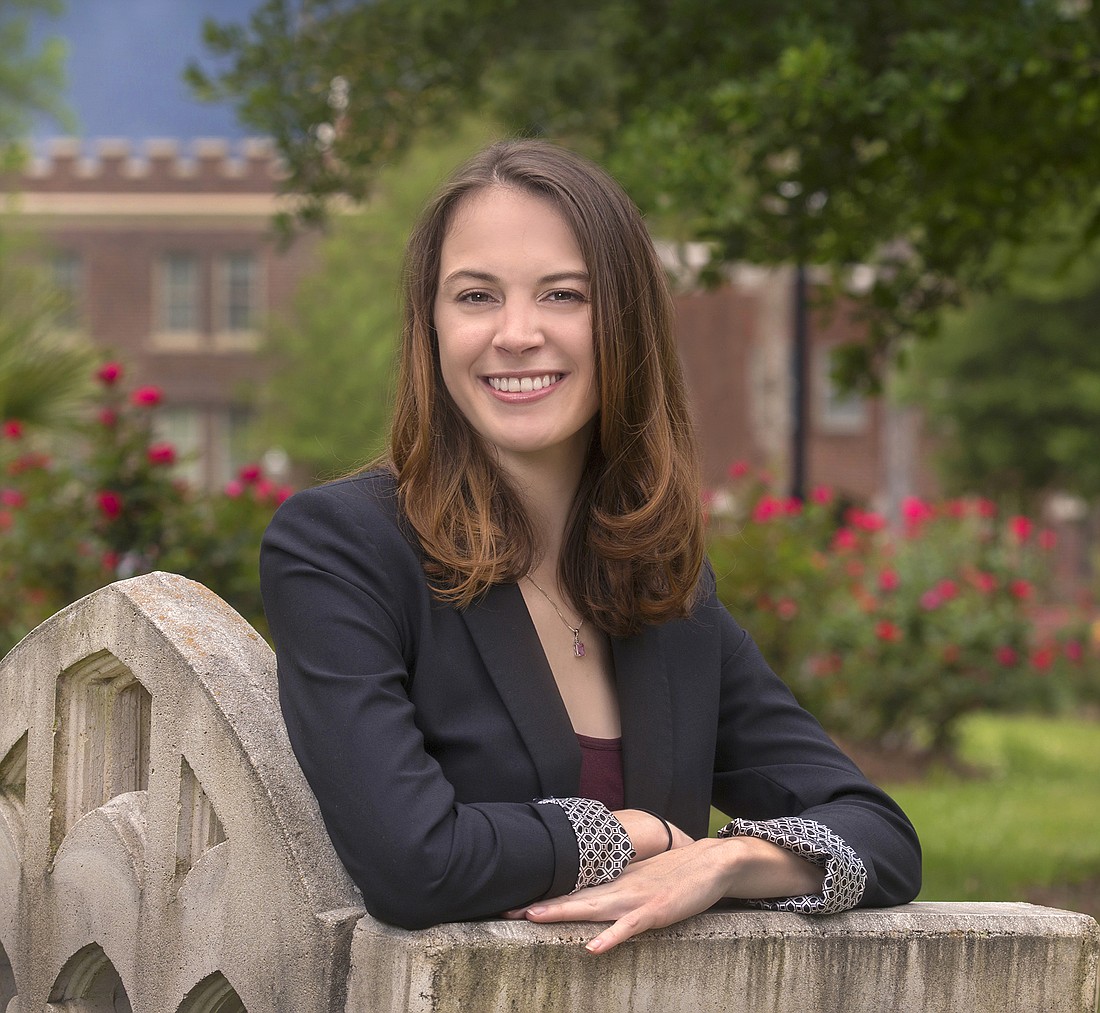- November 28, 2024
-
-
Loading

Loading

Eleni Jaecklein, 22, a Seabreeze High School graduate, is one of two Florida State University graduating seniors that will be studying at the University of Oxford this fall after being named a Frost Scholar.
She and Barbara Dietrick, of Castle Rock, Colorado, both major in biological sciences and will pursue a master’s degree in a year of study. Jaecklein will study integrated immunology.
Jaecklein said her interest in science started when her parents would take her to museums as a child and then increased in the classroom.
“I love organic chemistry,” she said. “It gives you a whole differ perspective. You have to think about chemical reactions that are going on and why those things are happening.”
The scholarship funds FSU students in STEM fields, which are science, technology, engineering and math.
The program, which is supported by the Phillip and Patricia Frost Philanthropic Foundation, covers 100% of university and college fees and provides a grant for living costs.
Jaecklein said she “fell in love” with research while working in genetics research at FSU. She used her research to write an honors thesis.
But more than study will be on her mind next year.
“The whole point of studying abroad is to immerse yourself in the community and that’s what I intend to do,” she said.
She said she wants to get involved with something she has never done before such as archery or rowing.
After Oxford, Jaecklein intends to seek a doctorate in biomedical sciences at the University of Massachusetts and after that conduct research into infectious disease and vaccine development.
Jaecklein keeps in touch with some teachers in high school, such as Leah Paul, language teacher, and Robert Hernandez, biology.
“Mr. Hernandez had so much faith in me — more than I had in myself,” she said. “He always encouraged me to shoot for the stars. I never would have applied for Oxford. It just seemed so far out of realm of possibility.”
She said if students have a curiosity for something, they shouldn’t let math or chemistry stop them from learning.
“No matter what major you choose, there’s going to be a class that will be difficult and you shouldn’t shy away just because it’s a challenge,” she said.
Hernandez remembers Jaecklein well.
“Of the thousands of excellent students I’ve interacted with, I singularly remember a handful as particularly impressive,” he wrote in an email. “Eleni is permanently entrenched in that very rarified list.”
Schools now encourage studies in STEM, and Hernandez said the interest is high at Seabreeze because of a dynamic science department.
“My anecdotal experience has been that high school kids show interest in fields where their teachers are passionate,” he said.
Amy Monahan, Volusia Schools resource teacher for STEM, said that higher levels of study, such as that pursued by Jaecklein, are needed in the workforce.
She said Volusia Schools emphasize using STEM to build critical thinking skills and combine the individual areas. For example, science can be used to observe a problem and engineering problem can be used to solve the problem.
Monahan said teaching has changed since the 1960s, when students would ask, “Why do we have to learn this?”
“It’s not ‘sit and get,’ anymore,” she said, referring to passive learning. The teaching of STEM utilizes active participation.
The emphasis on STEM has not been in place long enough to see results in the workforce, she said. The kids who began STEM in middle school are now near graduation.
But, Monahan said there have been increases in STEM-related academies, which are high school courses aligned with specific careers.
She said young people are very “tech savvy.” It’s just a matter of teaching that technology is just a tool to solve problems, she said.